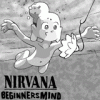Korpo
The Power is in the Reaction
by
, 20th February 2012 at 02:35 PM (1752 Views)
Recently I've been made aware twice - by two independent sources - what a powerful role our reactions play.
The first time was in a recent Charles session, where Charles emphasized the role of reaction in the reality creation process. He splits the process into five stages: intention, expectation, action, consequence and reaction.
Intention is the original wish or intent starting the reality creation process. Expectations are the beliefs and expectations shaping and possible blocking or distorting it. Action is anything that we do that might lead to our intention becoming reality. Consequence is what we observe as outcome of our action, showing us how the actual results deviate from our intended results. And finally - the reaction.
The reaction plays a special role. According to Charles every reality creation is also a growth process. In order to keep this growth process going we should pay close attention to our reaction. If we react for example with strong resistance, resignation or depression to an outcome, we shut this growth process down right there. Keeping our reactions in check is an important part. The reality creation process will go into another cycle if we can manage our reactions well, and so we can refine our intention, work with our expectations, modify our actions and observe the consequences until the reality creation process concludes.
The second time I encountered the importance of reactions was when reading about Vipassana meditation. There are several phases about our mental processes that are out of our reach, but not the reaction. The reaction decides whether we build a vicious cycle of accumulating craving or aversion, or if we defuse the same.
Every time anything comes up in our mind, be it through the senses or contents of the mind itself, our reaction determines whether we charge continue it or if we simply note it and let it cessate as easily as it arose.
In this sense the key to Vipassana meditation is keeping the reaction neutral, not building cravings by becoming attached to events perceived as pleasurable and not building aversions by avoiding impressions that are perceived as uncomfortable. Both reactions are said to ultimately create suffering, either when a pleasurable thing we crave fades away (as it ultimately does) or when an uncomfortable thing arises the next time.
If we keep the reaction in check during the meditation itself, old stuff may arise again out of the depths of the mind. If we can keep the reaction in check this time, it may be released. A cleansing takes place. It may be one thing less on our mind preventing us from being here and now and enjoying that.
These two processes may have more in common than one would think at the first moment. What Vipassana teaches is a way to change our experience of reality as it happens moment by moment. What Charles teaches is how we change the larger rhythms of our lives.
Both rhythms coexist at the same time, but our reactions affect also both. My reactions are no longer as charged as they were because of dealing with those larger processes. I had left my meditation practice behind in frustration, only to revisit it anew from a new perspective, and the angle I now pursue it from leverages those gains. They are two sides of the same coin, micro- and macroscopic if you may, that complement each other.
You can start learning about both - reality creation and greater contentedness - by minding this: the power of reaction.







 Email Blog Entry
Email Blog Entry



